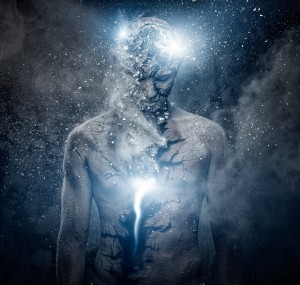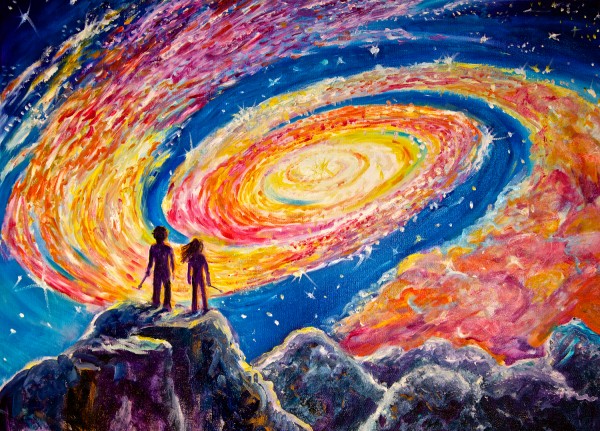
The Ego
We often use the term ego in our daily life – and yet, do we all mean even remotely the same thing?
In my experience, the most common use is about somebody “having a big ego”, when a person appears to think very highly of themselves. However, quite generally, the term is only vaguely defined in our society and this can cause many misunderstandings.
Because it is a key concept in this blog, here we provide a definition on what exactly we mean with the “ego”.
We follow Eckhart Tolle’s definition, which is inspired by Buddhist teachings:
The ego is the phantom self – a mental image about who we are, based on our personal and cultural conditioning.
– Chp 1, Track No02 in [1]
It is a false, an illusionary self, “created by unconscious identification with the mind” (Chp 1, Track No02 in [1]). Now, what does that mean?
It means that our ego is obsessed with compulsive thinking about the past and the future, because we derive our identity from what we did in our past and what we plan to do in our future.
“[…] This kind of compulsive thinking is an addiction […] you no longer feel like you have the choice to stop. […] [We are addicted to think because we] identified with it. Which means that you derive your sense of self from the content and activity of your mind. Because you believe that you cease to exist when you stop thinking. [The ego] consists of mind activity and can only be kept going through constant thinking.”
– Chp 1, Track No02 in [1]
However, as mentioned in the glossary article “The Now”, our ego’s endless preoccupation with psychological time (constantly engaging with past and future) makes us lose out on the present moment and what actually is. The present moment, however, is the only moment we ever have, the only moment that holds the key to a joyful* and liberated life.
“To the ego the present moment hardly consists. Only the present and future are considered important. […] It’s always concerned with keeping the past alive – because without it, who are you? It constantly projects itself into the future to ensure its survival and to seek some kind of release or fulfilment there. […] It uses the present for a means to an end.”
– Chp 1, Track No02 in [1]
Now, what to do about the ego?
It is very important to emphasize that the key to living in the present moment is not to get rid of, diminish or ignore our ego. The ego is not your enemy. It’s a part of you. Nothing more and nothing less. Like our mind, the ego may be a useful tool. For example, it may be a useful motivational driver. The key is to listen to what it has to say and approach it compassionately, just like with a little crying child.
We may choose to follow up on what the ego wants or not, and if we do so consciously, we disengage from our identification with the ego and rise above it. Take the crying-child-analogy; you may choose to give it what it wants or not, yet regardless you can approach it with love and compassion. When our ego is shown compassion it usually stops screaming at us and may even find some peace with the situation.
As Tolle notes, “the ego is always searching for something to attach itself to in order to uphold its illusory sense of self” (Chp 2 , Track No02 in [1]). Therefore, living in the present moment entails becoming an observer of our motivations, wants and needs. And an understanding that whatever our ego identifies with, does not make or break us.
Life is a game. Sometimes we get what our ego wants and sometimes we don’t. We may find fun in winning and get annoyed by losing. However, who pays attention and acknowledges the present moment, leads a joyful* life, irrespective of any losses or gains.
We are not our ego and yet we will never be without your ego. If we rise above it, we will transcend it. This will liberate us from the control that the ego has on our lives and we will find peace with what is.

References
[1]“The Power of Now” Audiobook with Eckhart Tolle
Written by Julia Heuritsch | Last edited: 20th June 2022